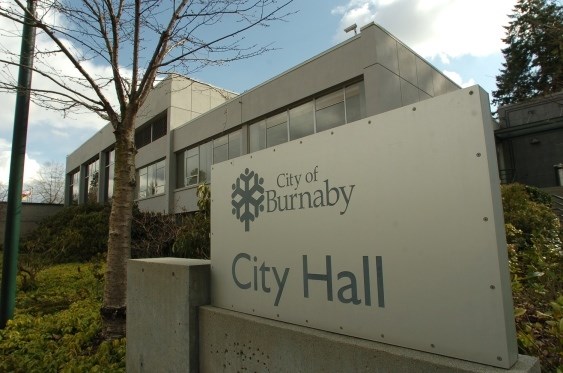Property taxes in Burnaby in 2018 will rise by 1.5 per cent.
That’s about half the average increase of the last three years and half what the hike is anticipated to be in each of the next four years.
A provisional budget was approved by council Monday that included the 1.5 per cent increase. The last time it was below two per cent was 1.97 per cent in 2014, which, like 2018, was a municipal election year.
“I don’t think we’ve seen a 1.5 per cent increase in a number of years in Burnaby. We worked hard to get it down,” said Coun. Pietro Calendino, who figured the increase would be at the low end of tax hikes in Greater Vancouver. “A lot of that is the increase (in revenue) we’ve had in the town centres. I know a lot of people have been complaining about the increase (in density) in the town centres, but this is the result of the increase in density …. more taxes and for us to be able to maintain their property tax at a lower level.”
Council warned the low rise might be an anomaly. Finance committee chair Dan Johnston said last week’s provincial budget means extra expenses for the city next year.
“I understand the cost of themedical services tax is an additional requirement of the cities of roughly four million dollars, so it will impact our bottom line for 2019. We are able to take advantage of a lower rate this year, but not be able to have the 1.5 next year,” said Johnston.
The property tax increase in 2017 was 2.95 per cent, 2.65 per cent in 2016 and 2.98 per cent in 2015.
The provisional budget pegs the 1.5 per cent property tax increase at translating into a property tax bill of $1,735 for the average residential home, an increase of $25.59 over 2017. But it also anticipates the increase for the following four years will likely be in the three per cent range.
What a homeowner has to pay depends on what the property’s assessment is. If it’s assessed value has gone up more than the average of homes in Burnaby, the bill will be higher than 1.5 per cent, less for those whose increase in value is below the Burnaby average. According to B.C. Assessment, the value of the average residential home increased by 7.13 per cent, with the higher jumps in the condominium and townhouse markets.
“People need to understand that, if the value of their house has gone up an extreme amount, they will see an increase in their tax,” said Calendino.
The city expects total revenue for 2018 to be $730 million. It has budgeted expenses of $678 million with $485 million going to the operating budget and $193 million to the capital plan.
The report says the operating budget focuses on maintaining previous levels of service, but there’s extra money in it to improve the Burnaby RCMP detachment administrative services, enhance parks, and add staff to handle all the development requests. Some of the new initiatives include enhanced park safety, including security cameras, improved trail lighting, better signage and a pilot bike patrol program.
The city issued $1.05 billion in building permits in 2017, exceeding the previous high of $879 million in 2015.
Coun. Paul McDonell said all the development Burnaby is experiencing has meant the city will be increasing staff to keep up, and it will be paid by development fees. It also means more density bonus money for the city, which can go into projects such as a new arena in South Burnaby and starting plans to replace C.G. Brown Pool.
“Because of the growth that’s going on now, we are able to replace some of these older facilities,” said McDonell, who also pointed out the bonuses can not be put toward the city’s operating expenses.
In the report, Mayor Derek Corrigan said Burnaby’s investment portfolio reached $1.3 billion in 2017, providing the city revenues with investment income of $44.5 million.
The provisional budget is a five-year document that also outlines expected numbers for up to 2022. Public input on it is being received until March 21 with the final plan to be formally adopted by council on May 15.


